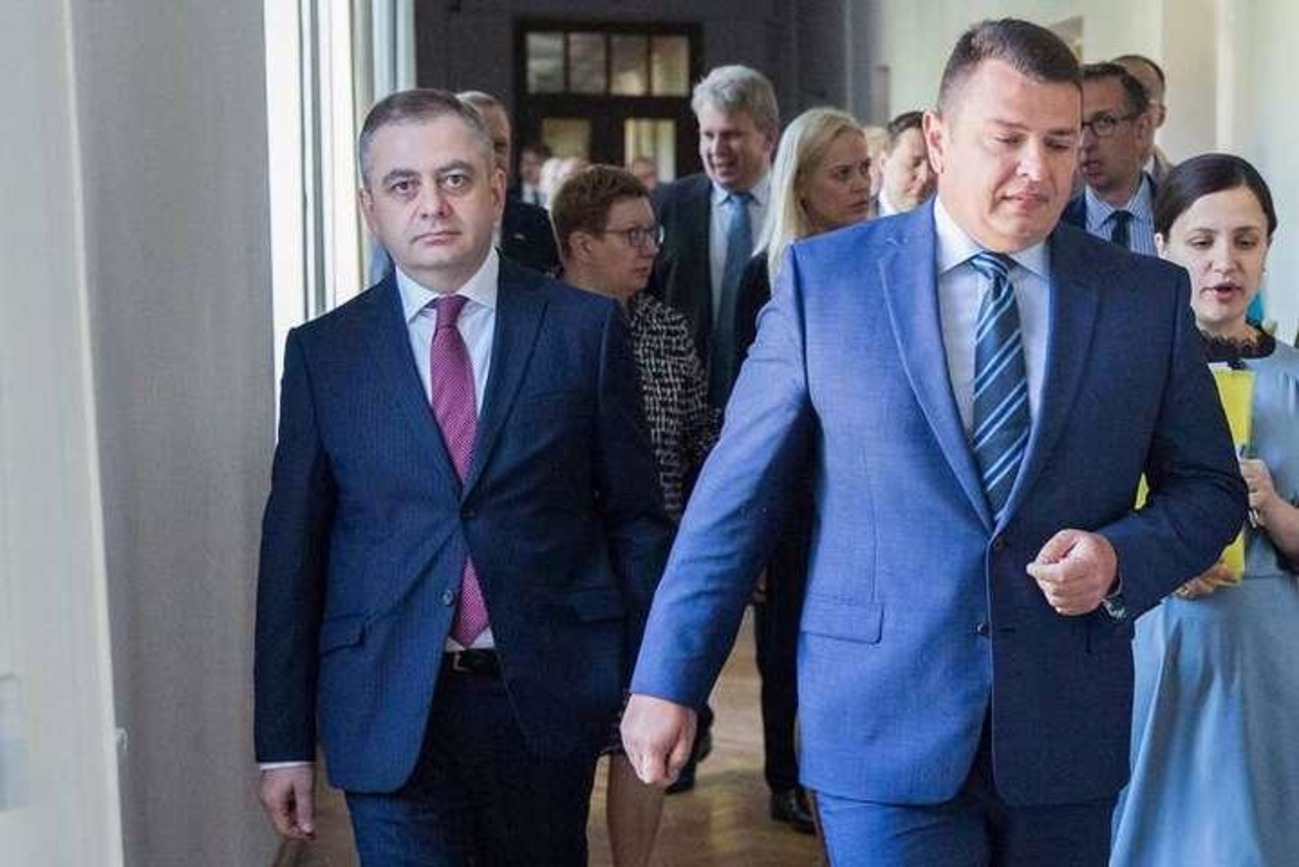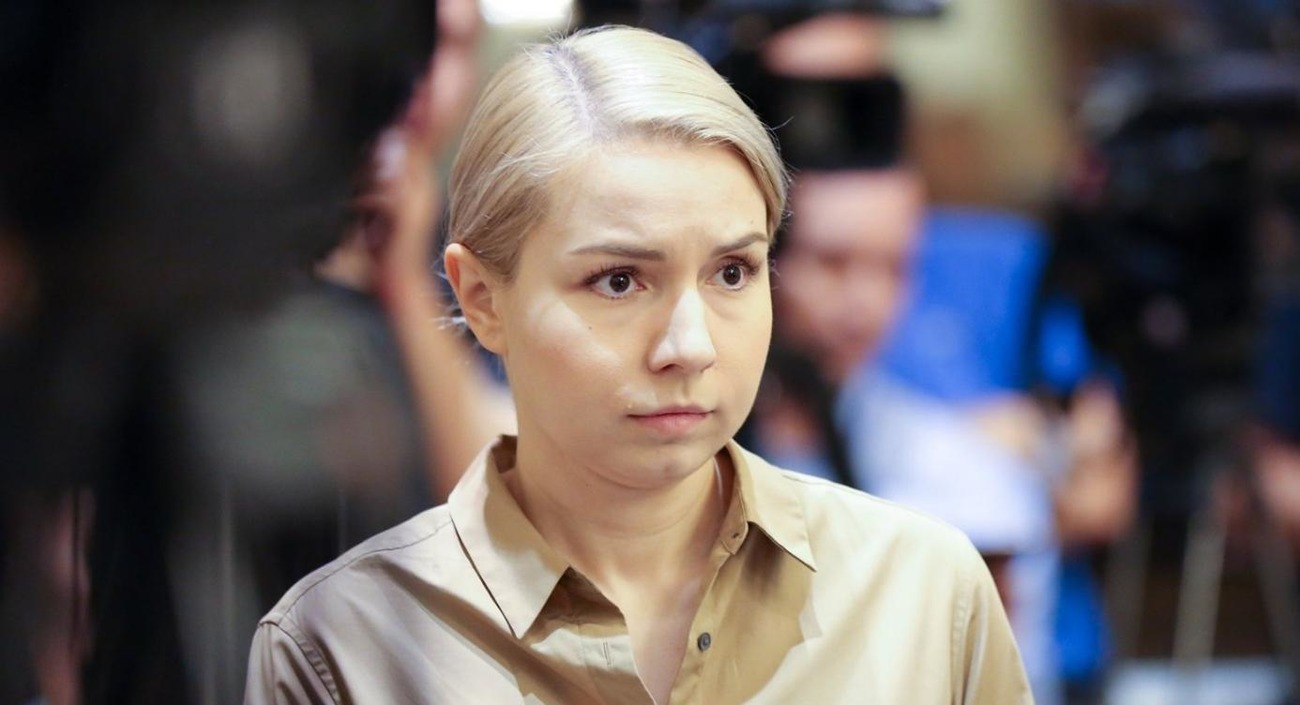Скандал со «сливами» вызвал кризис в органе, который плотно патронировали наши западные партнеры
До конца сентября 2024 года Украина должна провести независимый аудит Национального антикоррупционного бюро. Такое обязательство Киев взял перед Международным валютным фондом. Директор Национального антикоррупционного бюро Семен Кривонос еще в феврале сам анонсировал проведение аудита независимыми экспертами, которых назначили международные партнеры. Но сейчас, кажется, он был бы рад перенести эту проверку до лучших времен…
Фактически за 10 лет своей работы НАБУ фигурировало в нескольких скандалах. Но несмотря на все Бюро продолжало считаться органом, который находится вне любых влияний: даже во время открытого конфликта первого директора Бюро Артема Сытника с первым главой Специализированной антикоррупционной прокуратуры Назаром Холодницким, и даже после того, как Сытник оказался в реестре коррупционеров… Общественные активисты несмотря на все это стояли за НАБУ горой. Показательно, что после увольнения из НАБУ Сытник остался при государственных делах — сначала пошел работать заместителем директора Национального агентства по предотвращению коррупции, а сейчас занял аналогичную должность в Агентстве оборонных закупок Минобороны. И это также вызвало большой восторг у антикоррупционного сообщества.
Но прошлые казусы с Сытником сейчас кажутся мелочами по сравнению со скандалом, в который втянуты нынешние топ-чиновники Бюро. Свежая история, похоже, будет иметь для руководства НАБУ худшие последствия, чем для их предшественников. История со «сливами» информации из Бюро уже вызвала серьезный кризис в этом органе и рассорила директора этого органа Семена Кривоноса и с антикоррупционными активистами, которые ранее адвокатировали Бюро, и с нардепами.
Ливень «сливов»
Скандал начался 22 мая, когда Специализированная антикоррупционная прокуратура вместе с Нацполицией провели обыски у одного из детективов Бюро, а через несколько дней глава НАБУ Кривонос отстранил своего первого заместителя Гизо Углаву от исполнения обязанностей по его же заявлению. Формулировка — «для обеспечения объективного досудебного расследования, начатого по факту вероятной утечки информации». Есть подозрение, что именно ветеран НАБУ Углава (едва ли не единственный представитель «грузинских реформаторов», который до сих пор оставался в Украине с 2014 года) в течение длительного времени передавал посторонним информацию из недр Бюро. Выяснилось это в определенной степени случайно: после долгих попыток удалось «раскодировать» айфон, изъятый еще в 2023 году у бывшего негласного куратора проекта «Большое строительство», одиозного Юрия Голика.
Дело, в котором фигурировали Голик и экс-губернатор Днепропетровской области Валентин Резниченко, касалось тендера на 1,5 млрд грн на ремонт дорог на Днепропетровщине, где НАБУ заподозрила нанесение государству ущерба в 300 млн грн. Несмотря на серьезные меры цифровой безопасности, которые задействовал Голик, детективам удалось выковырять из гаджета следы переписки Голика с советником Офиса президента Георгием Биркадзе и анонимным топом из НАБУ. Сейчас все дорожки ведут к отстраненному Углаве.

В Верховной Раде внимательно следили за этими резонансными событиями и наконец решили узнать подробности из первых уст. Парламентский комитет по вопросам антикоррупционной политики под руководством Анастасии Радиной вызвал главу НАБУ на общение. Но Кривонос в последний момент отказался, сославшись на то, что продолжается инициированное им досудебное расследование, промежуточные и финальные результаты которого некорректно обсуждать без руководителя Специализированной антикоррупционной прокуратуры. Хотя ранее в НАБУ уверяли, что их Управление внутреннего контроля имеет достаточно ресурсов, чтобы самостоятельно проводить досудебное расследование относительно возможной утечки информации. Также Кривонос ответил депутатам, что не хотел бы «концентрировать усилия на политическом процессе».
Такое резкое изменение планов главы НАБУ подозрительно совпало с обнародованием прямо перед заседанием комитета журналистского расследования относительно непосредственного участия в «сливах» самого Кривоноса. Из расследования следовало, что он якобы делился информацией с главой НАК «Нафтогаз» Алексеем Чернышевым, из-за чего были сорваны обыски в доме Чернышева по другому делу, касающемуся возможного получения неправомерной выгоды. Радина нашла единственное объяснение игнорирования Кривоносом приглашения комитета именно этими новыми обстоятельствами.
Параллельно директор НАБУ втянулся в спор с антикоррупционными активистами во главе с главой Центра противодействия коррупции Виталием Шабуниным. Они стали категорически требовать от Кривоноса немедленной отставки Углавы, не дожидаясь завершения досудебного расследования, которое может длиться годами. Кривонос, в свою очередь, пожаловался, что стал жертвой кампании по дискредитации, и обвинил Шабунина в «охоте на ведьм». Впрочем, быстро понял, что в словесных соревнованиях на этом поле его шансы призрачны, и после обнародования «порочных связей» с Чернышовым замолчал.
В ожидании ревизоров
Бюро, которое всегда было абсолютным любимцем и лидером по доверию Запада и украинских общественных активистов, еще никогда не сталкивалось с кризисом такого уровня. Как эта проблема будет решаться — пока совершенно непонятно. Если к Сытнику очень лояльно относились в западных посольствах и среди антикоррупционных грантовых организаций, то нынешнему директору НАБУ, несмотря на его первые успехи с делом экс-главы Верховного Суда Всеволода Князева, такой поддержки уже ожидать не следует. Ему теперь могут вспомнить все подозрения в связях с Офисом президента, которые звучали, когда он с удивительной легкостью выиграл конкурс.
«Институт НАБУ сработал с проблемой: рядовой детектив, который увидел «слив» со стороны первого заместителя директора, как и должен был это сделать, проинформировал об этом директора и внутреннюю безопасность, — говорит глава Центра противодействия коррупции Виталий Шабунин, — И у меня сейчас ключевой вопрос к ним: справятся ли они со своей работой? Если справятся и Углава будет уволен — значит институция справилась».
Шабунин, ставя такой ультиматум, уверен, что независимый аудит, который состоится в ближайшее время, вряд ли сможет закрыть глаза на эту историю. Поэтому, по его мнению, директор НАБУ должен быть заинтересован в скорейшем ее решении, чтобы не получить неутешительный вердикт.
«Недоверие к институту, к сожалению, уже есть, — констатирует нардеп Анастасия Радина, — От НАБУ не прозвучало ответа на вопрос о служебном расследовании, увольнениях, внутренних административных мерах, которые бы сделали невозможным повторение такой ситуации. Конечно, в этой ситуации есть кризис доверия, а НАБУ, давайте честно, — последний орган, который может себе это позволить».

Радина рассказывает, что сейчас парламентский антикоррупционный комитет обменивается письмами с НАБУ о проведении своего выездного заседания прямо в Бюро: «Сейчас идут два параллельных процесса. Есть уголовное дело, которое может расследоваться определенное время. Если не ошибаюсь, среднее время между началом расследования и приговором во второй инстанции по делам НАБУ составляет 5-7 лет. Мы столько ждать не хотим, соответственно, НАБУ начало служебное расследование, по результатам которого могут быть уволены лица, совершившие нарушения. По законодательству, служебное расследование должно длиться два месяца. Если эти расследования начались сразу после обнародования информации, они должны закончится вот-вот. Поэтому не удастся просто отсидеться, потому что есть четкие сроки».
Радина очень надеется на аудит НАБУ, по результатам которого получим ответ на вопрос: была ли эффективной работа Бюро и его руководителя? Комиссия состоит из трех независимых экспертов с международным опытом. Если вывод аудита будет отрицательным, это является основанием для Кабмина досрочно уволить директора НАБУ. Возможность прекращения его полномочий по решению правительства была зафиксирована в принятом в 2021 году законе.
Отдельная интрига — как поведет себя Офис президента, с чьим советником (Биркадзе) якобы и общался Углава. Разрешение на потенциальное увольнение главы НАБУ Кабмином может прийти только с Банковой. Активисты опасаются, что Офис вполне устроит нынешняя подвешенная ситуация, когда работа одного из самых надоедливых для власти органов уже существенно дискредитирована, а доверие к его руководству подорвано.
Другое дело, что западные партнеры, для которых НАБУ является краеугольным камнем антикоррупционной архитектуры, могут не дать так просто парализовать структуру. А попытки власти нейтрализовать Бюро были и раньше — стоит вспомнить хотя бы заключение Конституционного суда от 2020 года по представлению группы нардепов о неконституционности назначения Сытника директором НАБУ. Правда, тогда к изменениям в его статусе это не привело.
Обмен «шпильками»
Если Банковая после скандала опосредованно станет на сторону руководства Бюро, это может спровоцировать очередной этап взаимных обвинений между властью и антикоррупционным сообществом. Публичный обмен «шпильками» уже спровоцировал сообщение главы Офиса президента Андрея Ермака. Де-факто второй человек в государстве возмутился тем, что борьба с коррупцией подменяется манипуляциями. Ермак обвинил «некоторых людей» в том, что они намеренно масштабируют проблему, иначе потеряется смысл их работы. Глава Офиса сделал вывод, что «эти люди» помогают россиянам раскручивать нарратив об Украине как «самом коррумпированном государстве».
Показательно, что пост Ермака появился сразу после выхода публикации в издании Politico о преследовании и давлении украинской власти на журналистов-расследователей и общественных активистов. И несмотря на то, что глава Офиса не назвал ни конкретных фамилий, ни организаций, к которым имеет претензии, его слова сразу восприняли на свой счет антикоррупционные активисты.
Очевидно, интриги вокруг будущего НАБУ только добавят этому баттлу новых красок: здесь найдется место и для вероятных обвинений власти в развале антикоррупционных структур и покрывании своих протеже, и для нервных реакций в стиле «не расшатывайте лодку». Вот только власть на все громкие упреки относительно толерантности к коррупции всегда может достать из кармана железобетонный аргумент: все аудиты, проведенные американцами по использованию их помощи, до сих пор каких-то вопиющих нарушений не выявили. Хотя, казалось бы, кто должен больше переживать за неприкосновенность средств, чем те, кто их непосредственно дает?


